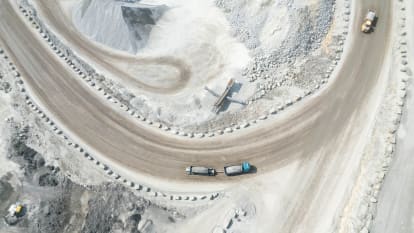NCC reports: Securing a sustainable material supply in the Nordics
A new NCC report sets out the state of sustainable material supply in the Nordics and also points out what has to be done to make sure that the identified supply gap closes and future aggregate needs are sustained.
The Nordic countries are facing a massive societal transition driven mainly by the shift to a climate-neutral economy with net-zero greenhouse gas emissions by 2050. Despite abundant natural resources and growing demand driven by record investments, the number of quarries across the Nordics has declined.
Increased demand versus the number of quarries
The combined aggregate demand is expected to rise from 460 million tons in 2026 to 525 million tons by 2045 – an increase of 37 percent. The number of quarries, however, has fallen by a combined 20 percent in Sweden, Norway and Finland, while remaining largely unchanged in Denmark. It simply doesn´t add up.
Securing a future aggregate supply
The number of quarries will have to increase in all countries if a future supply of aggregates is to be maintained. To achieve this, stronger policy instruments, better planning, and clearer market signals are needed to scale circular practices and reduce reliance on primary aggregates. In addition, by expanding the importance of a circular approach to aggregate handling, the need for new quarrying and transport distances will decrease. Optimizing the use of aggregates by quality improvements, early collaboration and using the right material for the right projects will help decrease the demand even further.
Primary areas and recommendations
With this report, NCC has identified three primary areas that are vital to meet this increasing demand:
- Facilitating the extraction of new aggregate materials
- Increasing the recycling and reuse of existing materials
- Optimizing material-use to reduce demand and minimize waste
In addition, there are nine policy recommendations that are proposed for decision makers. These potential actions will help secure a sustainable, long-term material supply that supports the societal transition.
Our recommendations in short
- Establish national strategies for aggregate supply preparedness
- Strengthen Region Spatial Planning for Resource Extraction
- Broader scope of permit assessments
- Strengthening Digital Transparency and Access to Data
- Encourage Cross-Nordic Harmonization
- Improved guidance on waste versus product
- Use partnering and functional requirements in procurement to optimize material usage
- Promote quarries that produce aggregates with a low climate impact
- Accelerate decarbonization of the Nordic quarrying sector
